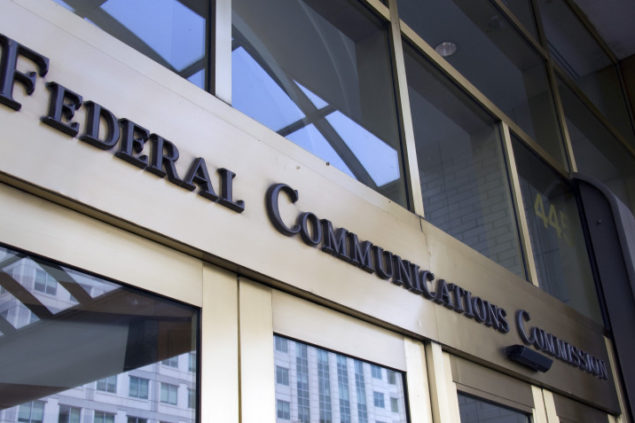Tech Roundup Episode 11 – TikTok’s Running Clock

Citing national security concerns, the Trump administration has ordered TikTok’s Chinese parent company, Bytedance Ltd., to sell U.S. operations of the popular video-sharing app to an American company by November 12. As the deadline inches closer, three major American companies have come to the fore as prospective purchasers but no sale has been completed, due in part to complications imposed by the Chinese government.
How might this standoff play out? Does TikTok pose a significant enough national security threat to warrant the forced sale? And how does this situation fit into the broader picture of U.S.-China relations?
Experts discuss.
Transcript
Although this transcript is largely accurate, in some cases it could be incomplete or inaccurate due to inaudible passages or transcription errors.
Ashkhen Kazaryan: Welcome to the Regulatory Transparency Project’s Tech Roundup podcast, which is a part of RTP’s Fourth Branch podcast series. My name is Ash Kazaryan, and I’m Director of Civil Liberties at TechFreedom.
Today, I am joined by Matthew Feeney, who is Director of Cato’s Project on Emerging Technologies, and Jamil Jaffer, who is Founder and Executive Director of the National Security Institute and Director of National Security and Law Program, and Assistant Professor of Law at George Mason University’s Antonin Scalia School of Law.
We are excited to discuss a very crucial and important topic that includes a lot of different sub areas of the tech policy today, which is the regulation and what exactly is going on with TikTok.
I’m going to start off by asking both Matthew and Jamil to just give me a quick recap of where we are right now. We’re recording this on September 4th. Where are we right now from your perspective? What’s going on with TikTok?
Jamil Jaffer: So, Matthew, you want to jump in? Or you want me to do it?
Matthew Feeney: Go ahead.
Jamil Jaffer: Obviously, we have a requirement from the U.S. government that Bytedance, the owner of TikTok, divest itself of at least its U.S. assets with respect to TikTok. We have a number of potential suitors, including, apparently, Microsoft. We’ll see what happens.
The Chinese government has indicated that it will require approval for TikTok to sell its algorithm, which obviously is at the heart of part of its intellectual property, and so the Chinese government has inserted itself into the fight. We’ll see how it all plays out.
The U.S. government has imposed, kind of in an amazing moment, a requirement on a foreign company to divest itself not of an asset that it acquired in the U.S., not of preventing a prior sale or an ongoing sale, but instead, an asset that it sort of natively developed and is employing here in the United States.
An interesting moment in both U.S.-Chinese relations, but tech policy writ large and U.S. national security policy. Because, at the end of the day, even though people think about TikTok as a platform for videos of kids and their families dancing together or whatever it might be, or millennials, it is viewed as a potential national security threat by the U.S. government and we should probably talk a little bit about why that is.
Over to you, Matthew.
Matthew Feeney: Right, I think that was a really good overview, and I think you ended on what I think is perhaps the most poignant and interesting issue in the debate; namely, how does TikTok implicate and affect national security?
I think this is a difficult debate to have, in large part because of the political environment we find ourselves in. It’s not a secret that the Trump administration is not exactly a fan of China, so I think it behooves us to treat some of its statements about the threat posed by this company as potentially suspect, if only because we should remind ourselves that we live in a global world where technology companies all over the world are trying to sell their goods in other countries.
The situation with TikTok could have implications beyond this particular purchase and controversy.
I would say that the main concerns associated with TikTok being a Trojan horse for Chinese espionage and any concerns about political disinformation are interesting, but I don’t think that a ban is warranted given those concerns.
Ashkhen Kazaryan: Let’s take a step back and start with what TikTok really is. I don’t know about you guys, but I don’t have it. However, through other sources, I’ve learned a little bit about what TikTok is.
It’s a social media app that allows its users to share, I believe, 15, 30, and 60-second videos. TikTok had an immense growth in the last two years and especially during the pandemic. During the spring, many people, stuck at home, have turned to TikTok. If before the pandemic, it was more of a Gen Z application; during the pandemic, there was definitely a spike in more mainstream celebrities and millennials and others joining this app.
A lot of people mention how user friendly and addictive the algorithm that you guys mentioned is. That’s why it attracts so many people to use it.
Now, let’s set up the stage. TikTok is not an American company. It is owned by a Chinese parent company, Bytedance. Interestingly enough, they don’t consider themselves a Chinese company and try to convince people they are not. Although, once their executive declined to testify before Senate because they said that their executives live in China.
Now, TikTok has hired—and the guy has already left—high ups former Disney executive. He was supposed to be the American face of the company, but that has not happened. So we’re interested what’s going to happen next with the sale.
I want to ask you guys about the three main concerns that we have. They kind of all overlap.
Number one is the compliance with the Chinese laws. TikTok collects a lot of data, and I want to be on the record and say that if you look at software engineers who broke down what data it collects, it’s immensely more than any other major social media platform does. It collects data even if you don’t create an account. There a lot of very, very problematic things about their data collection practices.
They have to comply with Chinese laws because they have a Chinese parent company. Jamil, do you think that can be a problem? Do you see why that is being flagged as one of the main issues surrounding TikTok?
Jamil Jaffer: I think, obviously, the collection of data—Ash, as you’ve laid out—is exactly the challenge. I would divide what the U.S. government has done with respect to Chinese companies and the national security concerns that they lay out into two or three categories.
First, you’ve got the set of companies where the U.S. is concerned about the infrastructure—telecommunications like Huawei and ZTE. We have attempts to acquire American companies by overseas companies where, in a range of areas, whether it’s semiconductors or quantum or AI where the U.S. government might have concerns.
And, then, you’ve got companies where there’s a data concern. The data concerns are not new, and they’re not new to TikTok or WeChat. They go back to things like Grinder, which the U.S. government forced the divestiture of after they were purchased by a Chinese company.
And they also go to the question of companies like MoneyGram that Ant Financial sought to buy and ultimately did not make it through the CFIUS process. They ultimately pulled out of that transaction.
Those go to the data they collect. The same is true of WeChat and TikTok. You might say, “Well, look, I get it on Grinder. They’re unique to people’s sexual orientation, people’s HIV status. That might be a concern there. It’s more sensitive. It’s health information.” You might think, “Well, with respect to Ant Financial and MoneyGram, well, that’s monetary. It’s around military bases. They make loans to military members.” That’s different than an app where you’re just chatting with people or creating silly videos—the 15 to 30 to 60-second variety, as you’ve described.
But, as you correctly point out, Ash, the problem here is that TikTok collects a lot more data than just that. They also—along with a lot of other companies, to be fair—were called out for violating Apple’s terms of service in terms of what data they collected without informing users.
The challenge here is this. It’s not just videos. It’s who you share those videos with. It’s who you communicate with. It’s who you connect with. It’s who is in your family circle. It’s what your videos are about. It’s the way you behave, the way you act, the way you think about problems in the world, the way you problem solve.
That sort of data, when gathered at scale, can be used both for intelligence purposes directly, but also for informing, building out, and strengthening AI algorithms that can be used years and years down the road to inform a foreign government about how people might act or think.
And so, the data that’s collected by TikTok, while on its face doesn’t seem particularly problematic, can be significantly problematic if you think about it in that context. I think that’s why the U.S. government has raised concerns with this particular data collection, Ash, as you point out.
Matthew Feeney: I would add that I don’t know if the concerns associated with that sort of data analysis are, of course, unique to the Chinese government. Now, of course, the Chinese government is one of the most oppressive in the world and certainly its treatment of civil liberties of its own citizens is horrific.
I certainly have sympathy with people who are concerned about that regime having access to Americans’ data, but what I suppose is worth digging in a little bit more is how useful that data would be to the Chinese state and weigh that up against the potential risk of them being found out to do this.
My own view at the moment—although, I’m, of course, open to being persuaded otherwise—is that costs to China’s reputation or its standing in the international stage if it was found out to be doing massive analysis on this kind of data despite assurances they weren’t doing it seems to outweigh a lot of at least national security benefits.
I want to make a distinction between the value of ordinary American citizens’ data and perhaps data belonging to government employees and members of the intelligence community and the armed forces. I know that there have been directives issued to people in those communities to get rid of the app.
But when it comes to ordinary Americans, I’m just not sure how useful the data is, especially when weighed up against potential costs of being found out.
I think we should also keep in mind that we shouldn’t miss the forest for the trees here. I think this concern about TikTok should provide an opportunity for a broader discussion about how personal data is handled in the United States. We have lawmakers who are free to pass laws about data privacy, and maybe readdressing the third-party doctrine that the Supreme Court seems reluctant to touch. That seems to be an opportunity lawmakers shouldn’t ignore.
Jamil Jaffer: Ash, I want to jump in here. It’s fascinating to me that Matthew doesn’t worry about the Chinese government massively collecting data on Americans and misusing it but is deeply concerned about the U.S. government and its implications.
I can’t believe that that’s the libertarian position; that we’re not worried about China and their collection of data on Americans, but the U.S. government, well, that’s a huge problem.
Matthew Feeney: I want to be clear. I’m concerned about both. I’m not exactly quiet about the risks of American domestic surveillance. I feel like I have a track record on concerns about that.
What I will say, though, is that I think Congress has an option here to address a wider issue, which is that this isn’t a concern unique to TikTok. TikTok isn’t the only company that operates in the U.S. that has affiliations with the Chinese.
I think the problem of government access to personal data, whether it’s the American government or the Chinese government, is concerning. But as far as American citizens in the United States are concerned, it’s just not clear to me that the Chinese state poses as big a risk as, perhaps, their own government at the moment.
I don’t want to make it sound as if I’m calm about the risks of the Chinese state. Like I said at the beginning of my comments, I think it’s arguably the most oppressive surveillance state in the world at the moment.
Ashkhen Kazaryan: I’m going to use my moderator’s privilege and, instead of asking a question, also answer it. What concerns me is—aside from, as I think we all agree, the Chinese government being extremely oppressive and repressive and not even a sliver of democracy existing there—it’s also the pattern of lies that TikTok as a company has shown since it was bought by the Chinese parent company where they denied having a certain privacy or data collection practice until there’s a report.
For example, the Wall Street Journal reported that TikTok skirted a privacy safeguard in Google’s Android operating system to collect unique identifiers from millions of mobile devices, and it allowed the app to track users online without allowing them to opt out. Things like that.
For me, there’s a lot of smoke. I don’t think I have seen a smoking gun, so to speak, because we haven’t had any confirmation that the U.S. citizens’ data is being transferred. But I think there is a lot of concern about the way it’s collected and the way the company does lie about how they do it.
I want to jump into the second part of why we are concerned about TikTok, and that is their content moderation practices. TikTok has used its reach and content moderation capability to, I would say, cultivate Chinese government’s preferred global narrative. You wouldn’t find any criticism of the Chinese government on the platform. They also suppressed any speech from Hong Kong protesters or any information about political topics that are sensitive in China, including reeducation camps, any of the previous human rights abuses, and things like that.
Back in March of this year, the Intercept disclosed about the TikTok moderators — the U.S. TikTok moderators who have left the company who are basically corporate whistleblowers. They were instructed to suppress posts that were criticizing the Chinese government, and that came from China.
Their decisions were escalated and overruled from China. I think that’s a pretty solid evidence that we do have of such practices.
Do you gentlemen think that content moderation practices can also be dangerous from the national security perspective? Or are you more focused on the privacy part of this equation?
Matthew Feeney: I’ll guess I’ll jump in and start. I do think that we should be careful about what category you’re putting this concern in.
For example, it’s totally legal for foreign companies to set up media outlets in the United States. Russia, today, functions in the United States, and it is, I think, fair to say that they have a content moderation policy that is decidedly pro-Putin and pro the Russian regime. That isn’t a violation of American law.
It may raise concerns about the influence that Russia has in the United States when it comes to political speech and debate, but I don’t see an immediate national security threat. But I could be ignorant of an important fact there that I’d be interested to hear about.
We should remember that it’s not illegal for a foreign business to try and influence the views of Americans. If it is the case, of course, that the Chinese government is putting pressure on a company to engage in a certain content moderation policy, I’m sure that I would disagree with many of those policies, but it’s not, it seems to me, an argument for divestment or a ban or anything like that.
Jamil Jaffer: Yeah, I tend to share Matthew’s view here because, at the end of the day, I think private companies can make judgments about what they do and don’t post. Again, the question whether this is actually a private company—and what it means to be a private company in China—is a separate matter. Having a Communist Party apparatchik at the top of your pyramid and involved in every decision hardly makes you an independent company.
So we know that the role that the government plays in China with private companies is very different than what we would think of as private companies here.
That being said, I do think that a lot of American companies are looking at content moderation. This is obviously a big concern here, so I think we’ve got to address this question here at home. There’s a lot of calls for content moderation on platforms. There’s also a lot of calls against it. There are concerns in both directions.
To be frank with you, I’m not sure where I come down on the right answer on content moderation and how to handle it here in the United States. I obviously despise certain kinds of content on these platforms, including things like terrorist use of the internet on platforms like Facebook and the like, and I want that content taken down.
At the same time, I’m concerned when we get into questions of speech and taking down people’s viewpoints based on a concern that Jack at Twitter or the CEO of Facebook is concerned about what people are saying. I do worry about these issues, and I’m not sure where I come down here. So I think it’s hard for us to look at China and say, “Well, you’re moderating that.”
That being said, it is the conduct of not just Chinese companies, but frankly, a lot of American companies in China, operating in China, and their cooperating with the Chinese state and its persecution of its own people, including the millions of Muslims that are in camps in the Xinjiang province, is absolutely outrageous. American companies shouldn’t stand for that.
You have a lot of American companies that go out there and say, “Well, you know, we have to cooperate with the U.S. government, so we’ve got to cooperate with all these governments, including China.” The fact of the matter is, the Chinese government is fundamentally different. They don’t operate under rules and laws like we do. You may not like our rules and laws, but we have judges that are appointed to life terms and make these decisions.
The Chinese don’t have that. They have the Communist Party, and that is a fundamental difference. There is not moral equivalence between the things we do versus the things that the Russian government or the Chinese government and the Iranian and North Korean government do.
Matthew Feeney: I agree with all that. I was looking around recently for any case that might be potentially relevant. I’m not a First Amendment lawyer, but I do think it’s interesting that in the 1960s, the Supreme Court unanimously held that a statute that restricted access to foreign communist propaganda did violate the First Amendment.
So I do think that, even if we don’t like a lot of what, of course, the Chinese regime is saying, I think any concern about content moderation is going to quickly run into First Amendment issues.
Ashkhen Kazaryan: Now let’s go back to where we started, which was the ban. There is this ban looming. President Trump, I believe around mid-July, started mentioning to press that he’s looking into banning TikTok or doing something about it.
The President has pretty wide economic powers. As we’ve seen with his previous executive orders, even when he’s on the record saying why he wants to sign a certain executive order, courts, 99 percent of the time, still find that he would act within his presidential powers when he issued them.
A lot of the outcome on this particular ban hinges on what happens next. Again, we’re recording on September 4th. There is a conversation about TikTok being bought by multiple American companies, including, I believe, Walmart, which would be very interesting, if you ask me.
The sale is very plausible, and I would want to, before we discuss the sale and its consequences, ask you to state for the record one more time: How do you feel about the ban? How do you feel about the legality of a ban? Because, obviously, we have a law professor in the room, so I would love to see you comment from that perspective, and just in general. Do you think that’s a very helpful tool in regulating social media/regulating national security threats?
Jamil Jaffer: Well, I guess that’s directed at me. Look, I think that this is, obviously, a fairly aggressive use of the President’s authorities. I do think that he probably does have the legal authority to engage in these actions. Frankly, from a policy perspective, I think that there are good reasons to do what he’s doing.
That being said, there’s no question that this is a much more forward-leaning president on these issues and on the use of authorities than probably we’ve ever seen before. It’s not just now about, okay, this transaction’s going to happen. This foreign company wants to buy an American company or buy assets in the United States. We’re going to look at it. That’s been happening for decades.
In fact, Congress recently strengthened the laws in that regard, particularly to address threats from China. So that’s nothing surprising.
What is new and different here, just to emphasize, is we’re not just talking about a divestment of some assets they bought here in the U.S. previously. We’re not talking about the review of a current purchase. We’re talking about the divestment of assets they natively created and are now selling it to the U.S., and that is a very interesting and different use of authorities.
Again, I think the authority is probably there. Congress did give the president tremendous authority under the National Emergencies Act and the International Emergency Economic Powers Act, IEEPA, to engage in this type of review. That authority’s been buttressed by the CFIUS regulations, the Committee on Foreign Investment in the United States, and the changes to that. That legislative regime by FIRRMA just this past couple years ago by Congress.
There’s a lot of authority in this space. That doesn’t mean it’s not an aggressive use of the authority, but I think, at the end of the day, probably a justified aggressiveness given the outrageous behavior the Chinese government is engaged in with respect to this country when it comes to IP theft and data acquisition and their clear effort to becoming a global competitor to the United States and our need to push back on that.
Matthew Feeney: I will leave the legal questions to the law professor. I don’t take a strong view on whether what’s happening with TikTok is constitutional or legal only because I’m not an expert on the legislation.
I just want to, I suppose, reiterate what I said at the beginning, which was that we should be aware of what this line of action means for future relations with not just China but other companies around the world.
I certainly share the concerns about China’s behavior to its own citizens and its abuses of civil liberties. It’s abhorrent. What I worry about is that these kinds of actions potentially worry other foreign companies and how they might try to market themselves in the United States.
But, certainly, I think it is important to emphasize that we’re dealing, here, with a regime that views itself as a competitor to the United States, that doesn’t value the civil liberties of its own people, and is engaged in arguably the most intrusive and abusive surveillance state ever seen.
That, I think, has to be a part of the conversation, and I think it does motivate many of the concerns. But nonetheless, I do think that we should always consider what kind of precedent we’ll be setting here, especially given, as Ash said, that oftentimes there seems to be a lot of smoke without direct evidence of fire.
Ashkhen Kazaryan: I will also say on the record that the privacy collection and the pattern of lies are definitely there. There is so much overwhelming evidence of that. But then again, yes, the national security threat questions are a little more murky.
Now, let’s go into solutions. We have on our hands a huge foreign company; the highest-valued startup in the world. I believe it’s like over $100 million, billion? I don’t even remember. I’m pretty sure maybe billion. They are collecting data on the next generation, on the future of the world. It’s extremely popular. Talk about competition in the social media market.
Gen Z are not signing up for anything you and I were signing up for. They’re all on TikTok, including people like my 15-year-old sister, who I’ve had many conversations with but could not convince to not do this.
What are the solutions that realistically we can have to kind of untangle at least part of this mess? By solutions I mean do you think the sale should go forward? Do you think the ban should be rewinded and we should just wait and see if any smoking gun appears out of nowhere? Just in general, how would you handle the situation if you were in charge?
Jamil Jaffer: Well, I think I would — sorry, go Matthew. No please, go.
Matthew Feeney: Please go ahead. I spoke last. Go ahead.
Jamil Jaffer: So I look at it, and I think I would keep this ban in place and force divestiture. I probably would’ve avoided the President’s suggestion that the U.S. government might take a fee on the transaction. I think that was probably a bridge too far.
Again, I think it’s an aggressive use of authorities but justified in this case with all the reasons that we’ve talked about so far.
Matthew Feeney: I’m not as sure. I certainly do have concerns about a regime having access to some personal data. Although, how that could be used against national security per se, I think, remains to be seen.
What I will say is that I think, as I said earlier, lawmakers in the United States should seize on the opportunity to better protect how Americans’ data—whether its housed in the United States or abroad—how that’s protected and managed.
It’s certainly no secret to anyone on this podcast that American companies gather tons and tons of data about people all over the world, and American citizens give data to companies all over the world, too, and that this has been used to conduct warrantless surveillance. That’s something that is a concern domestically as well as abroad.
Now, of course, the Chinese government is worse than the American government when it comes to civil liberties. I don’t think that’s up for reasonable debate. But nonetheless, I hope that there are people on Capitol Hill who are looking at this as part of a broader issue, which is, namely, that Americans are giving up personal data to companies all over the world and that is oftentimes not very well protected, and that law enforcement don’t have to go through many hurdles, oftentimes, to get access to it. That’s, I think, a broader concern.
So I view this TikTok issue as unique in the sense that its association with probably the worst civil rights abuser in the world is unique. But the problem with data collection is not, and I hope that lawmakers take this episode as an opportunity to address those issues.
Jamil Jaffer: Well, let’s get right into that. I’m really interested in this point that Matthew has made, this warrantless surveillance. Matthew, when you say “warrantless surveillance,” what exactly are you talking about? About this data that the U.S. government gets access to without warrants?
Matthew Feeney: Well, I mean, all kinds. It depends on the technology that you’d like to discuss. It’s certainly true that—
Jamil Jaffer: Give us an example.
Matthew Feeney: For example, the use of cell-site simulator technology in the United States allows law enforcement, without a particularized warrant based on probable cause, to gather troves of information about the location of American phones and, by proxy, the location of American citizens.
Jamil Jaffer: But not the content, right?
Matthew Feeney: No, that’s right. The third-party doctrine, codified in the 1970s, is the doctrine that stated you don’t really have a reasonable expectation of privacy to information you volunteer to third parties, which, you know — I’d be open to doing a separate podcast on a debate about the Fourth Amendment, but certainly, since the Carpenter case, there have been debates about how personal data will be managed in the future.
Certainly, Justice Gorsuch, in his dissent in that case, raised issues about the legitimacy of the third-party doctrine. But it’s not just, of course, the metadata associated with phone calls and texts but also internet browsing history and other location information, for example, associated with license plate trackers.
That is a concern. I wouldn’t, of course, put it in the same category as what the Chinese state does to its citizens, but I’m still concerned about it nonetheless.
Ashkhen Kazaryan: Professor, I think we’re going to do this reshuffle where — our listeners probably noticed that I am way more concerned about the national security surrounding TikTok, but I will say, Matthew and I are about on the same page when it comes to surveillance reform and the problematic parts of U.S. surveillance. We should have a separate debate and separate podcast about it.
But I will say Section 702, Warrantless Collection, or the upshot of the Ninth Circuit that just yesterday, or two days ago, published an opinion saying that bulk phone record collection was illegal and probably unconstitutional, but it doesn’t even matter because the program was also worthless and many other things.
Again, I think we can have a very passionate debate about surveillance reform in the United States. Before I let you both go, I do want to ask you the last question, which is how do you see this whole situation tying into the U.S.-China relationships and tying to potentially balkanizing the internet?
Obviously, U.S.-China trade relation and U.S.-China diplomatic relation has been in a new stage since President Trump took office, and this TikTok saga is a big chapter of it now. I just want to see, and ask you guys, how do you see it unfolding? Do you think this is going to be the next stage of balkanizing the internet? What’s going to happen on that front?
Matthew Feeney: I think it’s — go ahead.
Prof. Jamil N. Jaffer: No, no. Please, please, go.
Matthew Feeney: I’ll say, I think the internet’s a definite call to infrastructure to balkanize, but I think we’re only a few months away from an election, and I think a lot of U.S.-China relations will be dependent on who wins that election.
Certainly, I think if Trump is reelected, the issues associated with how Chinese companies operate in the United States or how their subsidiaries operate in the United States will not go away.
If it’s not TikTok, it will be something else. So, no, I don’t see this issue going anywhere anytime soon. Whether it balkanizes the internet, though, is a difficult question. Certainly, the infrastructure itself, I think, is okay, but the availability of apps could become another battlefield in this conflict that we have with China, which isn’t just associated with the internet, but of course with trade and other things.
When we’re this close to an election, I’m hesitant to make predictions. I’ve been wrong about every political prediction I’ve made in the last five years, so I’m hesitant to make another one. But certainly I’m confident in saying this issue isn’t going anywhere anytime soon.
Jamil Jaffer: I agree with Matthew. I think this issue isn’t going anywhere anytime soon. And I do worry about the balkanization aspect of this. It is worth noting that a lot of this is — the responsibility falls on China’s shoulders. This is the country that built the great firewall. This is the country that is engaged in this type of data collection and that is the responsible for the thefts of Americans’ data – OPM, Marriott, Anthem, Equifax.
So the billions of dollars of American intellectual property totaling per year in the trillions, which they’ve built entire companies on the basis of — there’s a reason why a Huawei router looks a lot like Cisco router; it’s because it essentially is a Cisco router because the Chinese government stole the technology, handed it to Huawei, and let them make it.
I think it bears noting that they bear the responsibility for getting in this fight. It doesn’t mean that it couldn’t cause balkanization problems given the way that we handle it.
You also have to wonder: The Chinese government hasn’t yet retaliated for this type of activity. Both the Huawei stuff, although there have been smaller-scale punishments here or there but nothing more scale. But when you do see this Epic Games antitrust lawsuit filed against Apple and this whole thing. My son plays Fortnite and Fortnite is now no longer available on the Android and Apple app stores because of this fight between Epic Games and Apple and Google.
But it’s interesting because now that they’ve filed this antitrust lawsuit against Google and Apple, you have to wonder: Epic Games is in significant part controlled by a Chinese company. Is this part of the response? Is this part of the pushback by the Chinese government, albeit indirectly? So that is one concern.
I do want to throw one last thing on the surveillance issue. I know this podcast isn’t about it. We can talk all we want about warrantless surveillance, but I just want to make sure we’re talking. There’s a difference between metadata and content, and Section 702—as much as, Ash, you and Matthew may be concerned about it—it does not apply to Americans. We all know that. It’s in the statute itself.
So we should have a separate debate on surveillance. I think it’d be a lot of fun. But at least for today, on TikTok and WeChat, it seems like there’s significant agreement amongst all of us.
Matthew Feeney: I’d welcome that debate, and I hope we get to chat again in the near future.
Ashkhen Kazaryan: So it’s not two on one, we can get maybe Klon Kitchen from Heritage. I think he also has a very strong position on 702 and other programs and how he views them. I’m looking forward to that.
Closing off, I just want to say thank you, gentlemen, for joining the show. Thank you everyone for listening. Please let our listeners know where they can find more of your work, and just in general, if you have any final thoughts. But link them to your work and your websites and everything like that.
Matthew Feeney: Yeah, sure. You can find more information about me and my work at the Cato website, which is Cato.org. I sometimes tweet @m_feeney.
Jamil Jaffer: You can find my work on the National Security Institute’s website at NationalSecurity.gmu.edu. I also occasionally tweet @jamil_n_jaffer or @MasonNatSec.
Ashkhen Kazaryan: Amazing. Thank you so much, everyone, for joining the podcast, and I hope you enjoyed the show.

Speakers
Founder & Executive Director, National Security Institute
Director, National Security Law & Policy Program and Assistant Professor of Law, Antonin Scalia Law School
Topic
The Federalist Society and Regulatory Transparency Project take no position on particular legal or public policy matters. All expressions of opinion are those of the speaker(s). To join the debate, please email us at [email protected].






